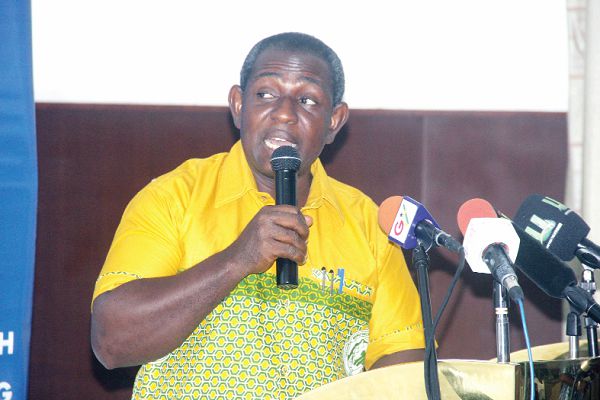
SSNIT calculation of benefits flawed — TUC report
An eight-member committee set up by the Trades Union Congress (TUC) to look into the current Pension Scheme has identified gaps in the computation of pension benefits by the Social Security and National Insurance Trust (SSNIT) for its contributors.
The wrong computations affect how SSNIT recognises annual salaries, determination of annuities (regular allowance payments) and early retirement reduction.
The report faulted the SSNIT for “wrong interpretation of what constitutes annual salary (36 months), early retirement reduction factor and annuity factor on lump sum,” describing it as “strange to the PNDC Law 247 and must be scrapped.”
The report further noted that “the SSNIT Pension is low because SSNIT has misinterpreted the Pension Law, which has resulted in low payment of pensions, thus making the contributors worse off.”
The committee last Tuesday submitted its report to the leadership of organised labour for discussion.
The committee was mandated to look at the issue of annual salary, annuity factor and early retirement reduction factor as being implemented by SSNIT.
Low salaries
Presenting the report at a forum, dubbed “Trades Union leadership forum on pensions”, a member of the committee, Mr Joseph King Adu, found reason to debunk perceptions that low salaries of workers who contributed to SSNIT accounted for the paltry allowances and lump sums pensioners received.
“The committee believes that it is a wrong perception. SSNIT has trumpeted this perception over the years to make people to believe that only low salaries are the cause of low pension annuity. The committee believes that rather, it is because of SSNIT’s misapplication and misinterpretation of the law to the disadvantage of members,” he stated.
Position of committee
Mr Adu said it was the position of the committee that SSNIT was not applying the law governing the pension scheme and appealed to the National Pensions Regulatory Authority (NPRA) to compel the first-tier pension fund manager to “do the right thing.”
“So far, SSNIT has not been able to produce the legal basis for the definition of annual salary, early retirement reduction factor and annuity deduction. They only claim it is actuarial principles.
“We recommend that the NPRA should compel SSNIT to compute pensions strictly based on the law and nothing else,” he told the leadership of the unions.
Mr Adu said SSNIT claimed that its way of declaring the annual salary (using the best of the last three years or 36 months) was favourable to the contributor, but the committee thought otherwise; it was wrong.
Touching on the annuity, the monthly pension allowances paid to contributors, Mr Adu stated that it was the consideration of the committee that the annuity of lump sum applied to deceased benefits and not retired benefits.
A member may exercise the option for a part lump sum payment of 25 per cent of his pension and a reduced pension based on the average annual salary for the three best years of a member during his working life.
Pension is a big thing
The Secretary-General of the TUC, Dr Anthony Yaw Baah, commenting on the report, said pension was a big issue and that it would feature prominently in this year’s Workers’ Day celebration to draw the attention of authorities that “it is our life.”
He said the TUC took the issue seriously that was why it assembled the three top leaders of all organised union groups to discuss the issue dispassionately in order to identify the way forward.
Dr Baah commended the Friedrich Ebert Stiftung (FES), a German government-backed foundation, for providing sponsorship to enable the union to organise the forum to create a platform for the leadership to discuss the final report of the committee.
The Programme Coordinator of the FES, Mr Ebow Mensah, who spoke on behalf of the foundation, said the issue of pension had come up a number of times in previous policy fora and that his organisation, therefore, found it an important issue to support.
Engagements
In a brief statement, the chairman of the committee, Dr Justice Yankson, said the committee engaged organised labour, SSNIT and the NPRA, adding that it had reached a stage where it was waiting for some decisions to be made.
He said organised labour had always stood firm, advocated and argued for what it believed was right for the workers of Ghana.
